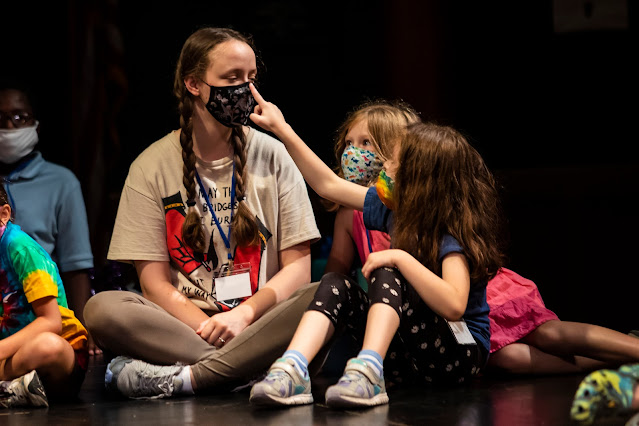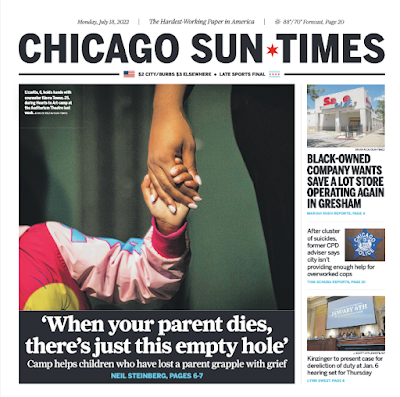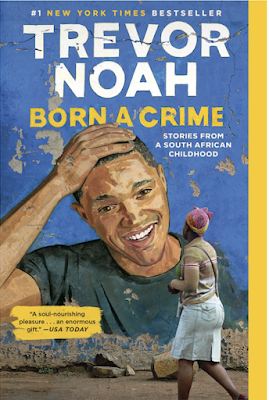 |
| "Physical touch is what made this place feel safe," says Grace Law, 24, a group leader at Hearts to Art, a camp for children who have lost a parent. (Sun-Times photo by Ashlee Rezin) |
Davion isn’t on stage with the other kids, talking, stretching, being put through their morning paces at the Vittum Theater.
Instead he’s lying on the floor by the lobby door, silent, alone, facing the wall. But that’s OK. Camp director Sarah Illiatovitch-Goldman gently coaxes the 6-year-old to his feet.
“Come with me,” she urges, “I need you with me.” She guides Davion into the auditorium. He dives into a seat, drawing his knees up against his lips, watching. In front of him on stage are three dozen kids, warming up, rolling their shoulders. From diverse backgrounds — boys, girls, at least one non-binary child, ages 6 through 10. City and suburbs. Black and white, from across the economic spectrum.
But they share one hard reality that has upended their young lives and sent them here, to Hearts to Art, a two-week summer camp for children with parents who have died.
Now in its 18th year, applications are way up. The program, mixing creative arts and counseling, is run by the Auditorium Theatre and held at the Vittum. The theater, in Chicago’s West Town neighborhood, is part of Northwestern University’s Settlement House.
“This year we had a record number,” Illiatovitch-Goldman says. “The amount of loss is bigger.”
Both in Chicago and across the country. A study in Pediatrics last year estimated one in four COVID-19 deaths — 250,000 and counting — cause a child to lose a parent or caregiver. Between illness, accident and violence, an estimated 3.5% of children in America have a parent die before the age of 18. A 2-year-old boy lost both parents in the Highland Park 4th of July shooting.
To continue reading, click here.







.jpg)

